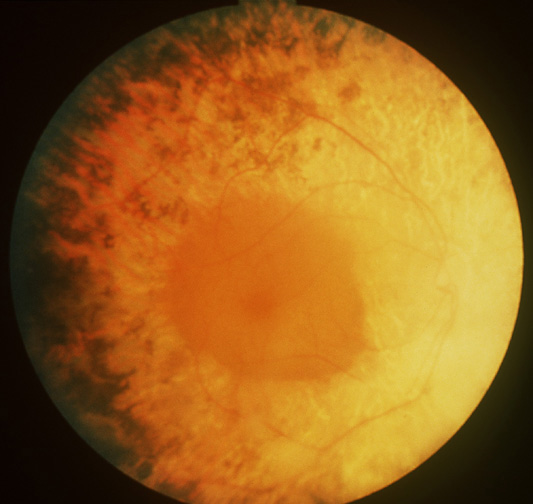Usher syndrome is an inherited disease that causes serious hearing loss and retinitis pigmentosa, an eye disorder that causes your vision to worsen over time. Usher syndrome is a condition characterized by hearing loss or deafness and progressive vision loss. A person with Usher Syndrome has inherited the Usher gene from both parents. It is a rare inherited disorder characterized by sensorineural deafness and progressive vision loss. Usher syndrome is thought to be responsible for 3 percent to 6 percent of all childhood deafness and about 50 percent of deaf-blindness in adults. Usher syndrome is inherited as an autosomal recessive trait..
There are 3 types of Usher syndrome:
Usher syndrome type I (USH1)
Usher syndrome type II (USH2)
Usher syndrome type III (USH3)

All types of Usher syndrome include progressive vision loss due to retinitis pigmentosa, a disorder that affects the retina. Individuals with Usher syndrome type I are typically born completely deaf or lose most of their hearing within the first year of life. Usher syndrome type I is estimated to occur in at least 4.4 per 100,000 people. This type of Usher syndrome also includes problems with the inner ear that affect balance.
SurgeryPlanetThe hearing loss associated with Usher syndrome type II mainly affects high tones and ranges from mild to severe. Hearing loss does not change over many years but may go down with noise exposure or with aging. Usher syndrome type II usually does not lead to complete blindness. Usher syndrome type II appears to be the most common type of Usher syndrome.
People with Usher syndrome type III experience progressive hearing loss and vision loss beginning in the first few decades of life. They are born with normal hearing and near-normal balance but after some years they develop vision problems and then hearing loss. There is good genetic evidence that the gene for USH3 is located on a different chromosome than the locations of USH1 and USH2. People with Usher syndrome type III may also develop difficulties with balance due to inner ear problems. Type III Usher syndrome accounts for only a small percentage of all Usher syndrome cases in most populations..
Symptoms:
Speech difficulties
Hearing loss
Balance problems
Loss of vision
There is no cure for Usher syndrome currently. Researchers are currently trying to identify all of the genes that cause Usher syndrome and determine the function of those genes. Usher syndrome is not caused by only one gene. Diagnostic tests can be conducted such as Hearing tests, Electronystagmography (ENG) - for balance, Retinal examination, Electroretinography (ERG) - for retinitis pigmentosa.
About Eye
Eye Diseases
Vision problems
Find Cost
Surgeries & Treatments
Best Eye Hospitals
Testimonials
Get Free Quotes
Top Hospitals In India
Top Hospitals In Turkey
Top Hospitals In Mexico
Top Hospitals In Costa Rica
Top Hospitals In Singapore
Top Hospitals In UAE
Top Hospitals In Australia
Top Hospitals In Malaysia
Top Hospitals In Thailand
Top Hospitals In Phillipines